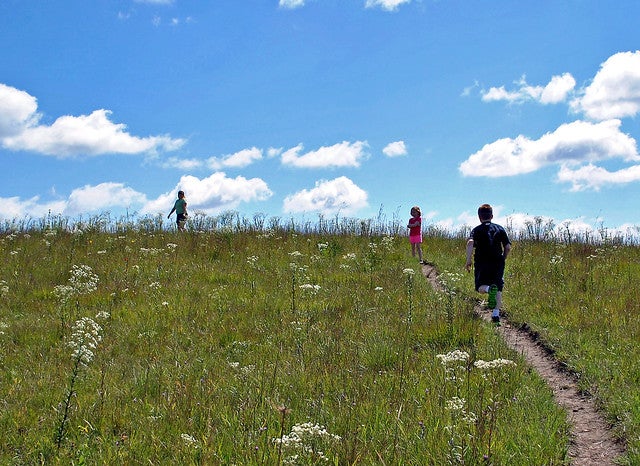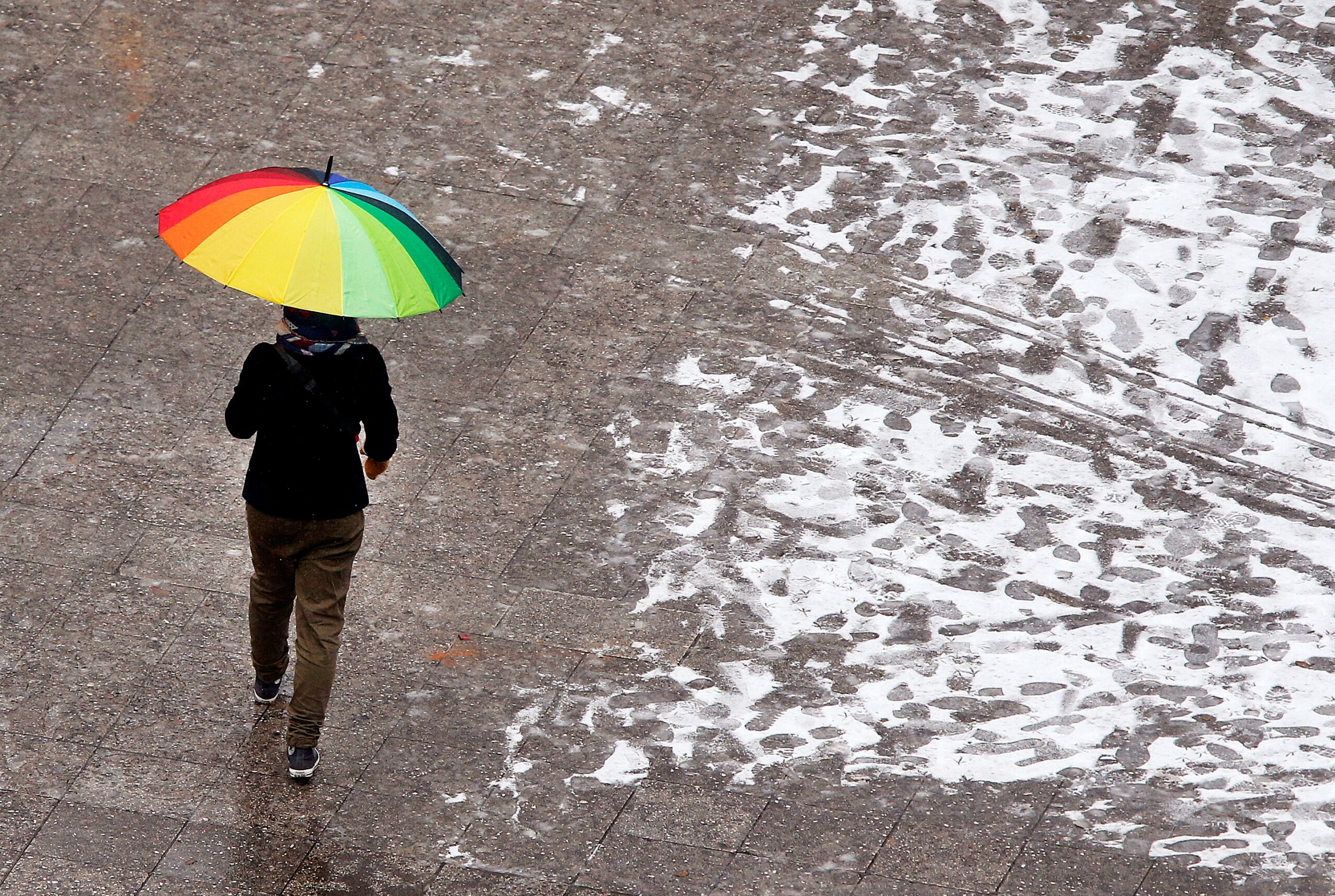A walk in nature can do wonders for your mental health. But between work and other commitments, finding the time and motivation to be outdoors can feel like a challenge.
And after a long day, a seemingly endless supply of new TV shows and internet distractions can sound like a welcome way to relax.
But there are real implications to our well-being from spending the bulk of your time indoors behind a screen, according to Shilagh Mirgain, a clinical psychologist at the University of Wisconsin School of Medicine and Public Health.
Stay informed on the latest news
Sign up for WPR’s email newsletter.
“Nature really provides us something unique to allow us to flourish in all aspects of our life,” she said. “When you go outside, something happens … above and beyond what human connection can provide.”
Studies show that the average adult will spend more time behind a screen than they do sleeping, and kids — ages 8 to 18 — spend an average of seven hours a day behind and screen and only about 30 minutes outside in unstructured play, Mirgain said.
Those sedentary lifestyles are linked to a host of problems, including higher rates of depression, anxiety and a variety of diseases.
Mirgain pointed to a study that had split people into two groups: one went for a 10 minute walk around a city, looking at skyscrapers, the other group took a 10 minute walk around a city park.
“The group that spent that time in nature came back different,” she said. “We found things like lower stress hormones, like cortisol, in their system. There was also improved thinking and even memory and increased vitality and focus and even a boost in mood.”
What’s important about that study is it shows benefits become apparent in even a short amount of time, Mirgain said.
“Even in a busy workday, or when your kids come home from school, step out in nature, go for a walk, sit outside under a tree … or even just bring some nature into the house or into your workspace and you’ll start to notice that there are ways it will really improve the quality of the day,” she said.
If you want to incorporate more time in the outdoors, but are feeling strapped for time, Mirgain suggests starting small and putting on your calendar at least five minutes during the week — and longer over the weekend. Overtime, as it feels more natural and becomes a habit, increase that time.
“Sometimes a person is really busy and they put it off and put it off, but a couple of minutes on your lunch hour, just walk outside and look at the surrounding landscape, or even before you go to bed you might go stand on your backyard and look up at the stars,” she said.
Living in a world of constant connection and being bombarded with emails and texts at all hours robs our brains of the chance to be quiet and calm, Mirgain said.
“We can live in a place of reactivity, reacting to what’s happening and I think that nature allows us to just turn inward and just have things settle and come home to ourselves,” she said. “We feel connected to the world at large versus just in our own little problems of the day.”
At the end of the day, we remember moments where we are present, inspired and with people we care about, Mirgain said, not staring at a screen.
Wisconsin Public Radio, © Copyright 2025, Board of Regents of the University of Wisconsin System and Wisconsin Educational Communications Board.




